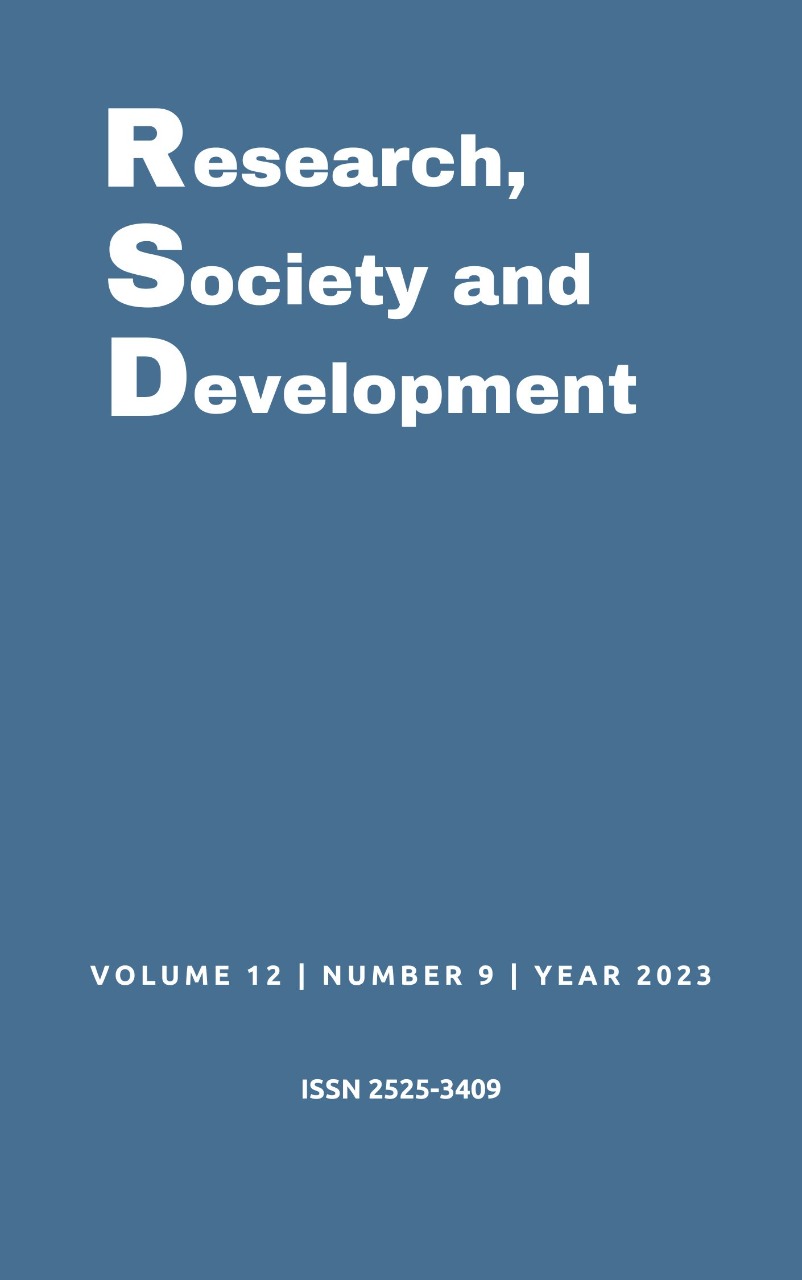Financial literacy of professionals working in banking institutions
DOI:
https://doi.org/10.33448/rsd-v12i9.43063Keywords:
Financial literacy, Personal finances, Banking institutions.Abstract
Professionals who work in banking institutions undergo qualification requirements, through graduation and certification, regarding activities related to finance, therefore, this research aims to identify how this professional conducts his personal finances. Financial literacy consists of three constructs: financial attitude, financial behavior and financial knowledge, the latter being characterized as a synonym for financial education. The research is quantitative, with data collected through a questionnaire and analyzed in a statistical and bivariate way, to meet the research objectives. The subjects that make up the sample are employees of three private banking institutions present in the city of Foz do Iguaçu, in the state of Paraná. The construction of the three constructs allowed the verification that the construct financial knowledge is the most verified with a high level, therefore, the constructs financial attitude and financial behavior can be raised through the increase of the individual's concern with the future, taking care of the present and reserving an amount of your monthly acquired money. The most common investment found was savings, even among professionals from banking institutions. Debts were also found, but all paid up to date, according to the agreed dates, with no individuals in default.
References
Amorim, W. A. C., Cruz, M. V. G., Sarsur, A. M., & Fischer, A. L. (2015). Políticas de Educação Corporativa e o Processo de Certificação Bancária: Distintos Atores e Perspectivas. REAd-Revista Eletrônica de Administração, 21(3).
Cardoso, J. S., Anjos, E. A., & Ferreira, D. D. M. (2017). Nível de alfabetização financeira dos alunos de ciências contábeis: análise em uma instituição de ensino superior catarinense. IV Congresso Unisinos de Controladoria e Finanças, Auditório da Escola de Gestão e Negócios Campus São Leopoldo.
Cervo, A. L., Bervian, P. A., & Da Silva, R. (2007). Metodologia Científica. (6a ed.), Pearson Prentice Hall.
Comentto. Calculadora Amostral. (2020) Disponível em: <https://comentto.com/calculadora-amostral/>.
Departamento Intersindical De Estatística E Estudos Socioeconômicos. (2020). Desempenho dos Bancos: 1º semestre de 2020.
Gil, A. C. (2017). Métodos e Técnicas de Pesquisa Social. (6a ed.), Atlas.
Gitman, L. J. (2017). Princípios de Administração Financeira. (12a ed.), Pearson Prentice Hall.
Hofman, R. M., & Moro, M. L. F. (2012). Educação matemática e educação financeira: perspectivas para a ENEF. Zetetiká, 20(2), 37-54.
Kuhl, M. R., Valer, T., & Gusmão, I. B. (2016). Alfabetização Financeira: Evidências e Percepções em uma Cooperativa de Crédito. Sociedade, Contabilidade e Gestão, 11(2), 53-80.
Maciel, H. M., & Maciel, W. M. (2016). Análise da inadimplência em uma instituição financeira na região metropolitana de Fortaleza. Humanas Sociais & Aplicadas, 6(17).
Maciel, H. W. P., & Costa, M. S. (2017). Modernas práticas de gestão do setor bancário brasileiro e seus impactos sobre os trabalhadores. XXXVIII ENCONTRO DA ANPAD, v. 13.
Marconi, M. A., & Lakatos, E. M. (2010). Metodologia do Trabalho Científico. Atlas S.A.
Martini, M. F. G. (2013). Renda fixa versus renda variável: uma análise descritiva entre as rentabilidades dos investimentos. Revista On-Line IPOG, Goiânia, 1(5), 1.
Martins, N. M., & Ferraz, C. A. (2018). A expansão do mercado de crédito brasileiro no período 2004-2009: determinantes, condicionantes e sustentabilidade. Cadernos do desenvolvimento, 6(9), 269-289.
Assaf Neto, A. (2016). Finanças Corporativas e Valor. (7a ed.), Atlas.
Oliveira, R. L., & Krauter, E. (2015). Teoria do prospecto: como as finanças comportamentais podem explicar a tomada de decisão. Revista Pretexto, 16(3), 106-121.
Potrich, A. C. G. (2014). Alfabetização Financeira: integrando conhecimento, atitude e comportamentos financeiros. Manancial, Repositório Digital da UFSM. Santa Maria, RS.
Potrich, A. C. G., Vieira, K. M., & Kirch, G. (2015). Determinantes da Alfabetização Financeira: Análise da Influência de Variáveis Socioeconômicas e Demográficas. Revista Cont. Fin. – USP, 26(69), 362-377.
Ribeiro, R. F., & Lara, R. (2016). O endividamento da classe trabalhadora no Brasil e o capitalismo manipulatório. Serv. soc., 126, 340-359.
Roesch, S. M. A. (2015). Projetos de Estágio e de Pesquisa em Administração. (3a ed.), Atlas.
Ross, S. A., Westerfield, R. W., & Jordan, B. D. (2010). Princípios de Administração Financeira. (2a ed.), Atlas S.A.
Savoia, J. R. F., Saito, A. T., & Santana, F. de A. (2007). Paradigmas da educação financeira no Brasil. Rev. Adm. Pública, 41(6), 1121-1141.
Silva, G. O., Silva, A. C. M., Vieira, P. R. C., Desiderati, M. C., & Neves, M. B. E. (2017). Alfabetização Financeira versus Educação Financeira: um estudo do comportamento de variáveis socioeconômicas e demográficas. Revista de Gestão, Finanças e Contabilidade, 7(3), 279-298.
Torga, E. M. M. F., Barbosa, F. V., Carrieri, A. P., Ferreira, B. P., & Yoshimatsu, M. H. (2018). Finanças comportamentais e jogos: simulações no ambiente acadêmico. Revista Contabilidade & Finanças, 29(77), 297-311.
Downloads
Published
Issue
Section
License
Copyright (c) 2023 Roberto Otuzi de Oliveira

This work is licensed under a Creative Commons Attribution 4.0 International License.
Authors who publish with this journal agree to the following terms:
1) Authors retain copyright and grant the journal right of first publication with the work simultaneously licensed under a Creative Commons Attribution License that allows others to share the work with an acknowledgement of the work's authorship and initial publication in this journal.
2) Authors are able to enter into separate, additional contractual arrangements for the non-exclusive distribution of the journal's published version of the work (e.g., post it to an institutional repository or publish it in a book), with an acknowledgement of its initial publication in this journal.
3) Authors are permitted and encouraged to post their work online (e.g., in institutional repositories or on their website) prior to and during the submission process, as it can lead to productive exchanges, as well as earlier and greater citation of published work.


